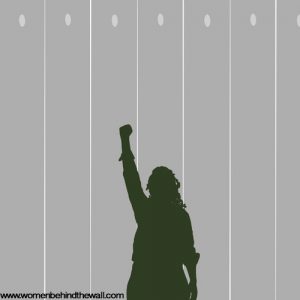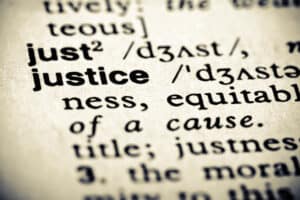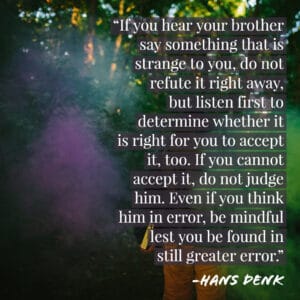 Episode 3: Cultural Expectations of a Young Woman Under the Occupation
Episode 3: Cultural Expectations of a Young Woman Under the Occupation
The Women Behind the Wall podcast highlights female voices from the Holy Land, and is hosted and produced solely by women who live and work in Jerusalem. The podcast seeks to amplify minority voices and perspectives, especially women’s experiences in the private sphere as it is affected by the public sphere. We hope you’ll join us here every Thursday for 10 weeks as we highlight each episode.
Listen to Episode 3 here
On March 29, 2002, the Israeli military rolled into northern Bethlehem on a mission inside the occupied West Bank city. Two days prior, a suicide bomber killed 30 Israelis and injured 160 during a Passover Seder dinner nearly 100 kilometers away in the northern Israeli town of Netanya (Times of Israel). Men fleeing the military invasion took refuge in the Church of the Nativity, joining 46 clergymen and 200 civilians sheltering in the church at the time. Amira, a Christian Palestinian from Bethlehem, was in sixth grade when the scenes unfolded during the 40-day siege.
In episode three of the Women Behind the Wall podcast, Amira, now age 26, recalls how the violence and occupation impacted her daily life. The army incursions were not limited to the church or directed solely at armed militants but reached into her neighborhood and even her own house. At one point, soldiers came in the middle of the night going door-to-door and ordered all of the males, including the young boys, out of their homes, where they were to stay all night outside. Movement restrictions were imposed so strictly that she and other children were unable to go to school regularly during that period. Her mother worked as a nurse and would stay at the hospital for days at a time because, otherwise, she would not be able to get to work. “It wasn’t like a normal life,” Amira remembers.
The army incursions were not limited to the church or directed solely at armed militants but reached into her neighborhood and even her own house.
The effects of the siege on the church, as well as the ongoing military occupation of the West Bank, were ever-present in Amira’s childhood and shaped her memories. She shares candidly about the humiliating way she witnessed a teenage Israeli soldier speak to her father and felt hopeless because there was nothing she could do to stand up to him. “The occupation is the ugly reality… the lack of movement, not being allowed to travel through Ben Gurion. This is not what life is supposed to be. Life is supposed to be easier.”
But Amira also recognizes that all her hardships in life are not due to the Israeli occupation, and some come from the expectations society has placed on her as a woman: “So my culture and my society and my family, they expect from me after university to be married, and two or three kids. This is not one of my main dreams… Even if it doesn’t happen, I am not less of a woman.”
These expectations from family had an impact on her education as well. As a teenager, Amira loved cinema and film, and her dream was to become an art director. Unfortunately, her parents would not allow her to go away to university in Egypt because she was a girl. They wanted her to stay nearby and to study another subject. Luckily, she found a passion in communications and was able to study at Bethlehem Bible College.
After graduation, she became the school’s Communications Manager and is involved in the Christ at the Checkpoint Conference (CATC), to share with evangelicals around the world about the lives of Christian Palestinians. She has expanded the programming into a local movement for the youth of the area, teaching a Christ-like approach to injustice.
Amira knows that as a Palestinian she has faced very hard circumstances, but says she feels lucky to have stories to tell and hope to spread which is rooted in her Christian faith. After studying at Bethlehem Bible College and her involvement with CATC, she now sees the occupation and conflict differently. She proclaims her freedom in Christ, which cannot be taken away, though she has found Western theological perspectives that deny her rights most challenging. She questions those who call themselves Christians but use the Bible to praise the killing of others or the taking of land and water from others. “Don’t use the Bible, don’t use my God, my Lord, the most peaceful and amazing man on earth to deny my existence, my rights, who I am.”
Her message is a plea for recognition of rights and existence. To outsiders, especially other Christians, she asks listeners to dig into the conflict and be involved in the story, to know the other side. And to a young Israeli woman, she would want them to see that she loves them. “We don’t hate. Because you know, they teach you that Palestinians are terrorists, that Palestinians are bad people and want you out of the country. That’s not true. We don’t want you out of the country, we know that you are humans, we know that you have your lives here, and we really don’t want you out of this country. We want you to recognize us. We want you to know that we do exist… we need to both have the same equal rights.”
We pray that Amira’s call to action and pursuit of justice inspires Christians everywhere to seek peace for all peoples of the Holy Land. Amen.
ESA is grateful to our friends at Churches for Middle East Peace for reprint permissions.


